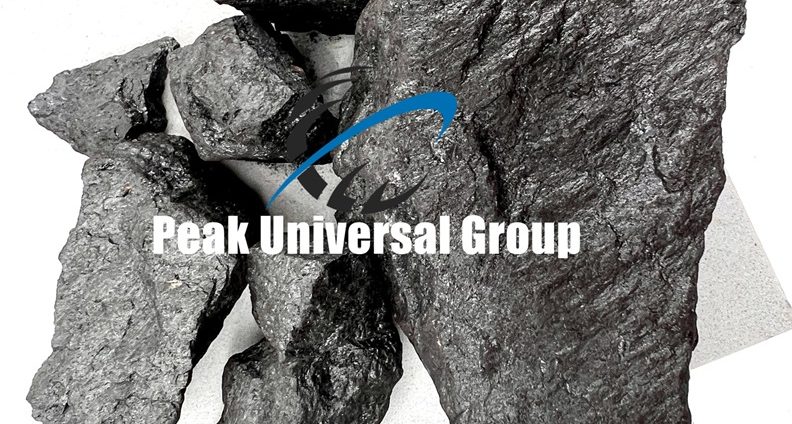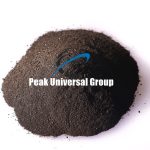
Gilsonite and Its Safety Aspects & Industrial Applications
Gilsonite and Its Safety Aspects – Gilsonite, also known as Natural bitumen or Asphaltum, is a naturally occurring solid hydrocarbon. It is a versatile material used in various industrial applications due to its unique properties, including high asphaltene content, thermal stability, and strong adhesive qualities. However, like any industrial material, handling and using Gilsonite requires careful attention to safety to prevent health risks and ensure effective application. in this blog you read about future prospects of gilsonite, Price Factors of Gilsonite, Composition and Properties of Gilsonite, Potential Hazards of Gilsonite, Safety Guidelines for Handling, Advantages and Disadvantages of Using Gilsonite and more.
The Importance of Safety in Handling Gilsonite
Understanding and implementing safety measures when handling Gilsonite is crucial for several reasons:
- Health Protection: Gilsonite can pose health risks if inhaled or if it comes into contact with the skin.
- Fire Hazard: Being a hydrocarbon, Gilsonite is flammable and can pose a fire risk if not handled properly.
- Environmental Safety: Proper handling ensures that Gilsonite does not adversely affect the environment.
- Operational Efficiency: Safe handling practices contribute to the efficiency and effectiveness of industrial processes involving Gilsonite.
Composition and Properties of Gilsonite
Before delving into the safety aspects, it’s essential to understand the composition and properties of Gilsonite:
- Chemical Composition: Gilsonite is primarily composed of carbon, hydrogen, nitrogen, sulfur, and oxygen.
- Physical Properties: It appears as a brittle, black, and shiny substance. It is soluble in aromatic and aliphatic solvents but not in water.
- Thermal Properties: Gilsonite has a high melting point, usually around 150-220°C (302-428°F).
Potential Hazards of Gilsonite
Understanding the potential hazards associated with Gilsonite is key to implementing effective safety measures:
- Inhalation Hazard: Fine Gilsonite dust can be inhaled, potentially causing respiratory issues.
- Skin Contact: Prolonged skin contact with Gilsonite can cause irritation or allergic reactions.
- Fire and Explosion Risk: As a flammable material, Gilsonite can ignite if exposed to open flames or high temperatures.
- Environmental Impact: Improper disposal of Gilsonite can lead to environmental contamination.
Safety Guidelines for Handling Gilsonite
1. Personal Protective Equipment (PPE)
Wearing appropriate PPE is essential to protect workers from potential hazards associated with Gilsonite.
- Respiratory Protection: Use NIOSH-approved respirators when handling Gilsonite powder or in areas with poor ventilation.
- Skin Protection: Wear protective clothing, gloves, and eye protection to prevent skin and eye contact.
- Eye Protection: Safety goggles or face shields should be worn to protect against dust particles and splashes.
2. Ventilation and Dust Control
Ensuring proper ventilation and dust control measures can significantly reduce the risk of inhalation and fire hazards.
- Local Exhaust Ventilation: Use local exhaust systems to capture dust at the source.
- Dust Suppression: Implement dust suppression techniques, such as water sprays or dust collectors, to minimize airborne particles.
- Regular Cleaning: Maintain a clean work environment by regularly cleaning surfaces and equipment to prevent dust accumulation.
3. Storage and Handling Procedures
Proper storage and handling procedures are vital to prevent accidents and ensure the safe use of Gilsonite.
- Storage Conditions: Store Gilsonite in a cool, dry, and well-ventilated area away from open flames or heat sources.
- Fire Safety: Keep fire extinguishers readily available and ensure that fire safety protocols are in place.
- Handling Practices: Avoid generating dust during handling. Use appropriate tools and methods to minimize dust release.
4. Emergency Procedures
Being prepared for emergencies can mitigate the impact of accidents involving Gilsonite.
- Spill Response: Have spill response kits available and train workers on how to contain and clean up spills safely.
- Fire Response: Establish fire response protocols, including evacuation procedures and firefighting measures.
- First Aid: Provide first aid training and have first aid supplies accessible to treat any injuries promptly.
🏭 Major Industrial Applications of Gilsonite
Gilsonite’s molecular structure makes it ideal for integration into a range of industrial systems, particularly those involving hydrocarbons or polymers.
| Industry | Applications | Function of Gilsonite |
|---|---|---|
| Oil & Gas | Drilling muds, cementing, shale stabilization | Fluid loss control, bonding agent |
| Asphalt & Roads | Paving mixtures, highway overlays, crack fillers | Increases hardness, temperature resistance |
| Inks & Paints | Printing inks, wood stains | Resin extender, pigment dispersant |
| Foundry | Foundry sand additives | Improves casting finish and anti-penetration |
| Adhesives & Sealants | Hot-melt adhesives, joint sealers | Enhances adhesion and waterproofing |
| Construction | Waterproof membranes, roofing compounds | Bitumen modifier and bonding enhancer |
Industrial Applications of Gilsonite and Associated Safety Practices
Gilsonite is used in various industrial applications, each requiring specific safety practices:
1. Oil and Gas Industry
Applications: Gilsonite is used in drilling fluids and cementing operations to improve performance and stability.
Safety Practices:
- Drilling Fluids: Ensure proper mixing to avoid dust formation. Use enclosed systems where possible.
- Cementing: Use PPE to protect against inhalation and skin contact. Monitor for potential exposure to high temperatures.
2. Construction Industry
Applications: Gilsonite is used in asphalt mixtures for road construction and roofing materials.
Safety Practices:
- Asphalt Mixing: Maintain proper ventilation in mixing areas. Use protective clothing and respiratory protection.
- Roofing: Use fall protection measures when applying Gilsonite-based roofing materials. Ensure proper ventilation to avoid inhalation of fumes.
3. Ink and Paint Manufacturing
Applications: Gilsonite is used as a binder and pigment in inks and paints.
Safety Practices:
- Mixing and Grinding: Use dust control systems and PPE to prevent inhalation and skin contact.
- Application: Ensure good ventilation in areas where Gilsonite-based inks and paints are applied.
📦 Physical & Chemical Properties of Gilsonite
| Property | Typical Range |
|---|---|
| Softening Point (°C) | 140 – 180 |
| Solubility in TCE (%) | ≥ 99 |
| Ash Content (%) | < 5 |
| Color | Glossy Black |
| Odor | Odorless to Slight Hydrocarbon |
| Moisture Content | < 1% |
Advantages and Disadvantages of Using Gilsonite
Advantages
- Improved Performance: Gilsonite enhances the properties of drilling fluids, asphalt, and other products, leading to better performance and durability.
- Versatility: Gilsonite can be used in various applications, making it a valuable material in multiple industries.
- Natural Product: As a naturally occurring material, Gilsonite is environmentally friendly when handled and disposed of properly.
Disadvantages
- Health Risks: Potential health risks associated with inhalation and skin contact require strict safety measures.
- Flammability: Gilsonite’s flammability poses a fire hazard, necessitating careful storage and handling.
- Environmental Concerns: Improper disposal can lead to environmental contamination.
Future Prospects of Gilsonite
The future prospects of Gilsonite are promising, driven by advancements in technology and increasing demand in various industries:
- Enhanced Formulations: Ongoing research aims to develop enhanced Gilsonite formulations that offer improved performance and reduced health risks.
- Sustainable Practices: Emphasis on sustainable practices will drive the development of eco-friendly methods for extracting, processing, and using Gilsonite.
- Market Growth: The growing demand for high-performance materials in construction, oil and gas, and other industries will boost the Gilsonite market.
Price Factors of Gilsonite
The price of Gilsonite is influenced by several factors:
- Quality and Purity: Higher quality and purer forms of Gilsonite command higher prices.
- Market Demand: Increased demand in various industries can drive up prices.
- Extraction and Processing Costs: The costs associated with extracting and processing Gilsonite affect its price.
- Transportation and Logistics: Transportation costs impact the final price of Gilsonite for end-users.
Why Choose Peak Universal Business as Your Gilsonite Supplier?
Peak Universal Business is a trusted supplier of high-quality Gilsonite. Here’s why you should choose them:
- Quality Assurance: Peak Universal Business ensures that all their Gilsonite products meet stringent quality standards.
- Wide Range of Products: They offer a comprehensive range of Gilsonite products tailored to various industrial applications.
- Sustainable Practices: Committed to sustainability, Peak Universal Business adopts eco-friendly practices in their operations.
- Customer Support: They provide excellent customer support, offering technical assistance and customized solutions.
- Competitive Pricing: Peak Universal Business offers competitive pricing without compromising on quality.
❓ H2: FAQ – Gilsonite Safety & Applications
Q1: Is Gilsonite classified as a hazardous material?
No. Gilsonite is non-toxic and non-hazardous, though precautions should be taken to minimize dust exposure and fire risks.
Q2: Can Gilsonite be used in waterproofing applications?
Yes. Gilsonite is widely used in bitumen membranes and waterproof sealants due to its high binding strength and water resistance.
Q3: Does Gilsonite have environmental impacts?
Gilsonite is non-soluble in water and biodegradable under natural conditions, making it safer than many synthetic additives.
Q4: What personal protection is required when working with Gilsonite?
Recommended PPE includes dust masks, safety goggles, and gloves, especially in powdered form.
🏁 Conclusion – Gilsonite and Its Safety Aspects
Handling and using Gilsonite in industrial applications require careful attention to safety to prevent health risks, fire hazards, and environmental contamination. By following the guidelines and best practices outlined in this blog, industries can ensure the safe and effective use of Gilsonite.
Whether you are in the oil and gas industry, construction, or manufacturing, choosing a reliable supplier like Peak Universal Business ensures you receive high-quality Gilsonite that meets your specific needs. Their commitment to quality, sustainability, and customer satisfaction makes them the ideal partner for your Gilsonite requirements.
By prioritizing safety and adhering to best practices, industries can leverage the benefits of Gilsonite while minimizing potential risks, ensuring a safer and more efficient work environment.
You can Read More about Gilsonite and Powder Gilsonite Here:
What is Natural bitumen in oil and gas industry?
What do they use Natural bitumen for?
What is Natural bitumen used for?
What are the uses of Asphaltum powder?
Difference between Bitumen and Asphaltum
What are the uses of Asphaltum powder?
📢Call to PUBLtd: Source High-Quality Gilsonite for Your Industrial Needs
🟢 Looking to integrate Gilsonite into your asphalt plant, drilling operations, or industrial production?
📩 Contact our technical sales team for product specifications, safety datasheets, and supply options tailored to your industry.
👉 Request a Quote Today
📧 Email: [email protected]
📞 Phone: +971 4 878 2031
🌐 Visit: https://publtd.com/
Looking for reliable, high-purity Gilsonite for your industrial applications? Contact us today for technical support, bulk pricing, and product specifications. Peak Universal Business as Your Gilsonite Supplier.
If You have any other Query or Question you want to ask, Please don’t hesitate to Contact Us
- 0 comment





Leave a Reply